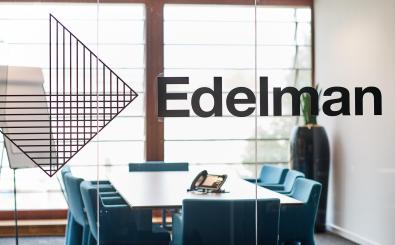It was the best of times, it was the worst of times. The famous beginning of Charles Dickens' "A Tale of Two Cities" is again relevant today. In 2019, the German economy grew for the tenth year in a row, and the job market continues to be robust despite the weakness of the economy. But perception differs consinderably from statistical facts. The general view of the future? Pessimistic.
According to the Edelman Trust Barometer 2020, just 23 percent of Germans believe that they and their families will be economically better off than today in five years' time. Only the French and Japanese are more pessimistic than the Germans.
Trust in Germany has fallen into unbalance. For many, the system no longer works. People do not regard any of the four major social institutions – government, business, media and NGOs – as ethical or competent, meaning they lack a basis for trust. More than two-thirds of German citizens do not trust their leaders to successfully master future challenges. People are looking for answers to the climate crisis, digitalisation and a changing labour market. 50% of people in Germany, from their immediate environment, believe that technological change is progressing too fast. Their employer remains the most trustworthy partner for many people. This should motivate companies and particularly CEOs to position themselves and show that they are good at what they do. To convince with fairness and credibility and that they are committed to society as drivers of innovation.
Building Trust: Three Points That Should Be on Every Company's Packing List
1. Show Attitude, Keep Stakeholders in View
Is success only a question of happy shareholders? People may have agreed once, but today, it’s becoming less true. According to almost all those surveyed (92 percent), customers and employees are among the most important stakeholders and have a decisive influence on how successful a company is in the long term. Customers reward the brands they trust when they share their values and act ethically. Attitude as a factor of trust is three times more important to people than corporate excellence. They expect companies and CEOs to be involved in social issues and to act in the interests of their customers, employees and local communities. So far, however, the majority of those surveyed still think the economy has a debt to pay.
2. Taking Responsibility, Driving Change
73 percent of employees are afraid of losing their jobs due to changes in the labour market. People are taking the economy to task: almost two thirds of Germans are convinced that companies can carry out a service to society and be profitable. The majority (85 percent) of respondents expect CEOs to provide answers to pressing questions, e.g. on the impact of automation and digitisation on existing fields of work, on income inequality and on the ethical use of new technologies.
One institution alone cannot turn the confidence rudder around. Rather, the results of the 2020 Edelman Trust Barometer make it clear that the people of Germany would like to see greater cooperation between the four institutions. This is particularly true for government and business, in order to create job security and prospects. For companies, this offers an enormous opportunity to take an active, formative role and be a catalyst for change. By tearing down rigid (psychological) barriers and, together with other societal pillars, facing labour-market challenges in a sustainable manner, companies can provide a solution to the growing fear of job loss and social decline.
3. Listening and Communicating
Movements such as the “Greta Phenomenon”, named after environmental activist Greta Thunberg, direct their societal demands equally at companies – and will become only more frequent. Companies must increasingly be able to identify such concerns and movements before they rise and incorporate them into their corporate and communication strategies ahead of time.
Despite all the pessimism, the results also give cause for some optimism: for the first time in years, the ETB is showing a positive trend. German confidence in the four social institutions is growing. If this trend is to continue, institutions must seize the opportunity to improve their ethics and competence and gain trust. Especially by convincing people through joint action with partnerships and joint action.
ABOUT THE EDELMAN TRUST BAROMETER
The Edelman Trust Barometer is an annual study on trust in governments, non-governmental organisations (NGOs), business and the media, and was conducted for the 20th time this year. The survey was developed by market-research company Edelman Intelligence and the data collection was carried out by means of 30-minute online interviews. The survey period was between 19th October and 18th November 2019. 34,000 people were surveyed in 28 markets for the Edelman Trust Barometer 2020, including 6,200 from the informed public (people aged 25 to 64 with a university degree, an above-average household income (in the top 25 percent) and high media and information consumption). Further information can be found here.


